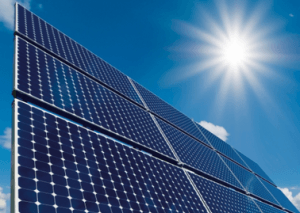Ghana to receive $40m Climate Investment Funds financing for renewable energy
 The Climate Investment Funds (CIF) says its governing body has unanimously endorsed Ghana’s renewable energy investment plan and would therefore give the country $40 million financing to the sector.
The Climate Investment Funds (CIF) says its governing body has unanimously endorsed Ghana’s renewable energy investment plan and would therefore give the country $40 million financing to the sector.
According a press release issued today May 18, 2015, in Washington DC and copied to ghanabusinessnews.com, CIF says the decision was taken at its governing body’s meeting this week.
“At its governing body meetings this week, the Climate Investment Funds (CIF) unanimously endorsed Ghana’s ambitious investment plan to transform and promote its renewable energy sector. The plan, which is slated to receive $40 million in funding from the CIF’s Programme for Scaling Up Renewable Energy in Low Income Countries (SREP), is structured around four key projects: renewable energy mini-grids and stand-alone solar PV systems; solar PV-based net metering with storage; utility-scale solar PV/wind power generation; and a technical assistance project (supported by the Sustainable Energy Fund for Africa – SEFA),” the release said.
The release noted that with a significant number of its citizens without access to basic electricity, Ghana is committed to drawing on its wealth of renewable resources to build a sustainable energy sector, and has already adopted a set of energy policy targets, including providing universal access to electricity by 2016 and achieving a 10% contribution of renewables in the electricity generation mix by 2020.
“However, today its renewables sector faces challenges including inadequate regulatory, contractual and tariff frameworks, and limited interest from investors. The infusion of SREP funding, along with $53.5 million in support from the African Development Bank (AfDB) and financing from other development partners, will help the country scale up and leverage private and public financial resources to build the country’s renewables sector and carry out the innovative set of projects,” it added.
The SREP investment plan is Ghana’s second investment plan under the CIF. The country also has an active portfolio under the CIF’s Forest Investment Program (FIP) – one of a handful of countries with plans in several sectors – and the SREP decision allows the country to exponentially expand its landscape of climate-smart development overall, the release noted.
Giving the State of the Nation Address in February 26, 2015, President John Mahama indicated that Ghanaians would be required to pay more levies to generate revenue for investment in renewable energy to address the current energy crisis facing the country.
He said Ghanaians would pay an increase on the Energy Fund on petroleum products. He said the levy would be raised from Gp0.05 to Gp1, part of which would be used to establish a renewable energy fund.
He also announced that the government would introduce an ancillary service charge of Gp1per kilowatt hour of electricity transmitted to generate revenue for investment in renewable energy. According to the president, part of this charge would also be used to fund solar energy in the country.
“We estimate that if we install 200,000 solar systems on rooftops, we would save this country 200 megawatts of power daily,” he said.
Established in 2008, the $8.1 billion CIF provides developing countries with grants, concessional loans, risk mitigation instruments, and equity that leverage significant financing from the private sector, MDBs and other sources.
Five Multilateral Development Banks – the African Development Bank (AfDB), Asian Development Bank (ADB), European Bank for Reconstruction and Development (EBRD), Inter-American Development Bank (IDB), and the World Bank Group (WBG) – implement CIF-funded projects and programmes, the CIF says on its website.
By Emmanuel K. Dogbevi
